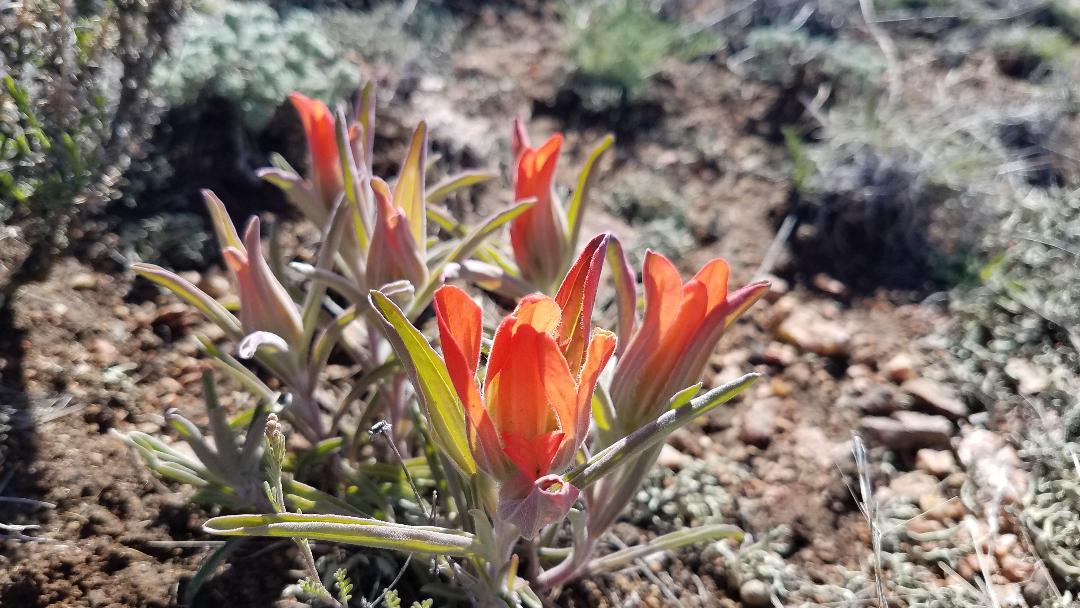|
The Sangre de Cristos offer something for everyone. From easy to challenging, the trails are ready (thanks to the trail maintenance volunteers) to accommodate horses, motorcycles, ATVs, road bikes, mountain bikes, snowmobiles and hikers. You can exhaust yourself scaling a 14er. Or… you can climb a gentle grade and just sit.
A certified Native Plant Master, she honed her skills volunteering at Denver’s Botanical Garden and tropical atrium. She has also served as a field naturalist guide at Chatfield Arboretum in Littleton, owned and operated by DBG. In addition, Christina has led field guide groups during Crested Butte’s annual Wildflower Festival. Locally, she has shared her expertise with both the Custer Country Weed Advisory Board and the San Isabel Land Trust. New landowners, who may not be familiar with our native plants, will find her a willing and valuable resource. Walking the owners’ newly acquired property, she can advise them on what plants need to be protected. If you point to a plant, she can name it: Astragalus, Calendula, Comfrey, Dandelion, Hyssop, Lavender, Motherwort or Nettle? Beyond identification, Macleod can tell you the medicinal properties of each. Typically, we think of burdock, nettles, and dandelions as weeds, but each has curative properties. Locally, Christina offers several plant and flower hikes throughout the summer. You can check her schedule at www.christinamacleod.com, or you can question her by email: [email protected] Christina stresses that her plant walks are walks, not hikes. She stays close to the Rainbow Trail, and her rambles are “assessible to all.” Non-hikers, including summer guests coming from a lower elevation, will enjoy their day. “I do interpretative teaching on the trail. I focus on family morphology and the interrelationship between plants in specific environments. We spend a lot of time on our hands and knees. At the end of the hike, I want those with me to say, ‘This is of value to me: I want to protect it.’” “At the beginning of the hike, those in my company may be solely focused on plant identification which calls for using their left brain, but on their return, I hope that they are using their right brain.” Christina mentions “Forest Bathing,” a term coined in 1982 by the Japanese Ministry of Agriculture, Forestry and Fisheries. Forest bathing is a person’s quiet immersion in nature. Research in Japan and South Korea has generated a significant body of scientific literature that supports the health benefits of soaking up forest sights, smells, and sounds. The health benefits of quiet immersion in a natural setting include lower stress levels, a better working memory, and feeling more alive. Statistics analyzed in 2001 by the U.S. Environmental Protection Agency revealed that the average American spent 87% of his time inside and 6% of his time in a vehicle. If those statistics were valid in 2001, they can only be worse in 2019! Christina has many skills and does many things, but everything that she does leads to mental, physical, spiritual unity. Attending to the natural world pulls the disparate parts together. Chuckling, she shared one final story. “Typically, in the past, I held my plant walks on Saturdays because many people go to church on Sunday. But one weekend, I offered a walk on Sunday. At the end of the walk, I apologized to the churchgoers, and one woman said, 'This was church!'" Just like people, time spent on trails comes in all of shapes and sizes: We have muscle-cramping, heart-thudding trails that challenge us to summit, but we also have trails that lead us to a quiet glade and spiritual renewal. All of them need care and stewardship. And Christina Macleod's knowledge and affection for native plants extends that invitation, “I want the public to take ownership of the planet," she says. "If you love what you see, you want to take care of it.”
1 Comment
|
AuthorThe Trails for All Board of Directors and invited guests! Archives
August 2021
Categories |


 RSS Feed
RSS Feed